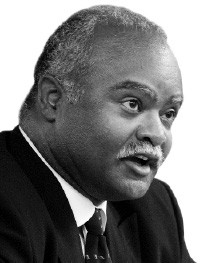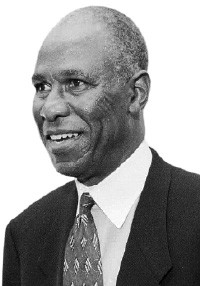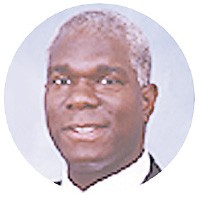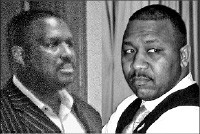Hip-hop news: Local faves Tunnel Clones have been holed up at DJ Red Eye Jedi‘s Hemphix Audio Labs for months, putting the final touches on World Wide Open, their follow-up to 2005’s Concrete Swamp. But this Friday, April 6th, they’ll be hitting the Hi-Tone Café with Sound Rebel Dem, DJ Leroy, DJ Wrekuh, b-boy Nosey, and a break-dancing crew in tow. “Nosey always has something interesting up his sleeve,” explains Tunnel Clones MC Bosco, who says that World Wide Open is scheduled for a summer release. Doors open at 9 p.m.; the show is 18 and up. For more information, go to www.MySpace.com/TunnelClones.
Memphian J. Simmons, the latest artist to record at Terry “FreakMaster” Turner‘s Sole Studio, will debut his stellar new album, Southern Hospitality, at Pressure World on Saturday, April 7th.
“Music was the only way I could find joy and peace, release tension, and enlighten myself,” explains the 26-year-old rapper, who grew up in foster homes and public housing, relocating from South Memphis to North Memphis to Westwood during his turbulent childhood. “I’m just a roamer. I grew up everywhere,” Simmons says.
“If I don’t write songs,” he adds, “I find myself clogged up with a lot of emotions. I learned how to make music in order to survive — to not get caught up in prison, be dead, or get caught up in other foolishness. With music, I have some control, but I’ve had to ask myself tough questions about what life was really about. I might be 26, but I feel like I’ve been here for a hundred years.”
Simmons formed short-lived alliances with K Roc from Three 6 Mafia and partnered with New Jack Entertainment before hooking up with Turner of “Mac of the Roundtable” and “Gimme What You Got (For a Pork Chop)” fame.
“Before, things just weren’t clicking. I was rapping about stuff that was destructive instead of constructive. When I met up with [Turner], I began writing music that ventured out, songs that people could dance to. He’s a very smart guy, plus he’s got a big heart and the patience of Job.”
The decision to hold his record-release party at a popular Orange Mound car wash was a no-brainer for Simmons. “Pressure World has a lot of history for helping up-and-coming independent artists,” he says. “I remember 8Ball & MJG playing there, all that element. And Big Mike [Rhodes, co-owner of Pressure World] is a real person. He’s very supportive, and he wants me to prosper as an artist, because we have the same message for the city’s youth: Don’t be about so much ignorance.”
Both Simmons and Turner tap the catchy “The Power of Music” as the album’s first single. Hear it live on Saturday night, after a spoken-word set from El Hakim the Poet. Showtime is at 8 p.m. Pressure World is located at 2575 Lamar Avenue. For more information, go to SoleStudio.com.
Powdered wig power: Lord T & Eloise just signed a two-year exclusive booking contract with Jason Pitzer of the Progressive Global Agency, which represents DJ Logic and R.E.M. The ink is hardly dry on the deal, but, says Cameron “Lord T” Mann, “if he puts his money where his mouth is, we’ll be in some interesting new cities this summer.”
Next week, the aristocrunk rappers are headed to Grimey’s Basement in Nashville, where they’ll play a diverse billing with Shake It Like a Caveman and Point Break on Thursday, April 12th. In the meantime, they’re in heavy discussions with Duane Hargrove, general manager of Hot 107.1FM, to see if they can launch a single on the popular urban radio station.
“When we say ‘white-boy rap,’ 90 percent of the population shuts down,” says Mann of the group’s attempts to cross over to an African-American audience. “Duane’s the gatekeeper at Hot 107.1. Everything has to go through him. He doesn’t want to rock the boat, so he called Yo Gotti and said, ‘Tell me what’s the reals on these guys.’ Within a half-hour, I got the call from Gotti, who said, ‘So, you’re talking to Duane.’ Now we’re mixing and mastering a song to test the market.”
Mann is also staying busy as studio manager of Young Avenue Sound: “Free Sol is in pre-production on a project for Justin Timberlake‘s new label,” he reports, “and Nakia Shine and Jack Frost came into the studio for three days, doing something for Universal. The Wailers did guitar and vocal demos with Aston Barrett, the guy who produced and nurtured so much music at Studio One in Jamaica.
 (AP Photo/Wade Payne)
(AP Photo/Wade Payne)  (AP Photo/John L. Focht)
(AP Photo/John L. Focht) 
 Justin Fox Burks
Justin Fox Burks  Jackson Baker
Jackson Baker 